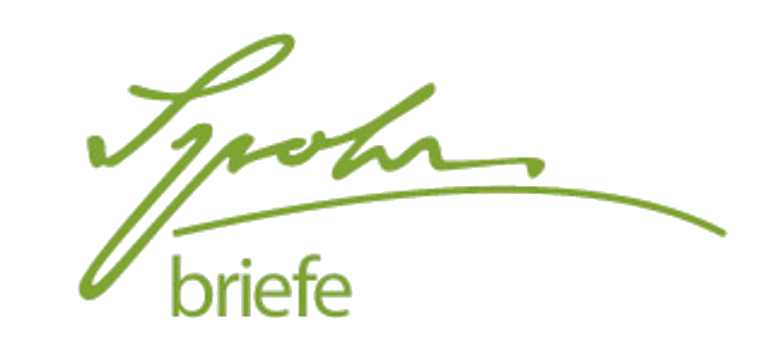1840010605
Louis Spohr an Christian Friedrich Lueder in Katlenburg
Kassel, Montag 6. Januar 1840
Autograf: letzter Nachweis vermutlich Gemälde, Aquarelle, Zeichnungen, Autogramme, Miniaturen aus Schweizer Privatsammlungen und aus anderem Besitz (= Katalog Bollag), Zürich 1935, S. 10
Druck 1: Music. Early Books, Manuscripts, Portraits and Autographs (= Katalog Maggs Bros. 512), London 1928, S. 280 (teilweise, engl. Übers.)
Druck 2: Music. Early Books, Manuscripts, Portraits and Autographs (= Katalog Maggs Bros. 557), London 1931, S. 115 (teilweise, engl. Übers.)
[…] At our third concert which is to take place next Friday we are only giving things you already know.1 But I hope to so arrange the programme of the fourth and last that a journey here will repay you.2 If I am not mistaken, you have not heard my 4th Symphony{3], and I could give that. The 5th4, which has just been produced in Vienna and which I specially wrote for the concerts there5, was given this winter at the 2nd of our concerts here.6 The new historical Symphony I cannot produce publicly this winter as I have arranged for it to be the exclusive property of the Philharmonic Society in London for one year. It will only be my property again after next Autumn, and I am looking forward with great pleasure to telling you many interesting details of our English travels. This was indeed one of the greatest events of my artistic life. I would never have thought that the English would be susceptible to good music or have such depth of feeling.7 My oratorio has become very dear to me after hearing the way in which it was produced and received over there […]
I have undertaken to write a new Oratorio for the next Musical Festival in Norwich. […] I have already finished the first part. It is called the ˮFall of Babylon,“ & is principially in Biblical words which promise the Composer many very varied & interesting moments. I am composing with great enjoyment […]
| Autor(en): | Spohr, Louis |
| Adressat(en): | Lueder, Christian Friedrich |
| Erwähnte Personen: | |
| Erwähnte Kompositionen: | Spohr, Louis : Der Fall Babylons Spohr, Louis : Des Heilands letzte Stunden Spohr, Louis : Historische Sinfonie, op. 116 Spohr, Louis : Sinfonien, op. 102 Spohr, Louis : Die Weihe der Töne |
| Erwähnte Orte: | Kassel Norwich |
| Erwähnte Institutionen: | Concerts spirituels <Wien> Hofkapelle <Kassel> Norfolk and Norwich Triennial Festival Philharmonic Society <London> |
| Zitierlink: | www.spohr-briefe.de/briefe-einzelansicht?m=1840010605 |
Dass dieser Brief, dessen für diese Edition verwendete Vorlage den Empfänger nicht erwähnt, die Antwort auf Spohr an Lueder, 13.12.1839 ist, geht aus Lueders Antwortbrief vom 08.01.1840 hervor. Dem Antwortbrief zufolge erwähnt Spohr außerdem, dass er zum Karfreitagskonzert in Kassel sein zuvor beim Musikfest in Norwich erfolgreich aufgeführtes Oratorium Des Heilands letzte Stunden geben wird.
[1] Zum Konzert am 10.01.1840 vgl. L., „Kassel, im Februar 1840“, in: Allgemeine musikalische Zeitung 42 (1840), Sp. 179ff. und 197ff., hier Sp. 180.
[2] Zum Konzert am 28.02.1840 vgl. L., „Kassel, im Juli 1840“, in: ebd., Sp. 597-603, hier Sp. 597f.
[3] Die Weihe der Töne.
[4] Op. 102.
[5] Vgl. „Die Concerts spirituels in Wien. Das Erste am 1. März“, in: Allgemeiner musikalischer Anzeiger 10 (1838), S. 41-44, hier S. 41f.
[6] Vgl. „Kassel, im Februar 1840“, Sp. 179.
[7] Zur Rezeption von Des Heilands letzte Stunden in Norwich 1839 vgl. zusammenfassend: Karl Traugott Goldbach, „,... dass die dabei gehaltene Predigt großentheils gegen sein Oratorium gerichtet war'. Zur Rezeption von Des Heilands letzte Stunden in Großbritannien”, in: Die Oratorien Louis Spohrs. Kontext - Text - Musik, hrsg. v. Dominik Höink, Göttingen 2015, S. 307-339, hier v.a. S. 308-312.
Kommentar und Verschlagwortung, soweit in den Anmerkungen nicht anders angegeben: Karl Traugott Goldbach (25.09.2020).
